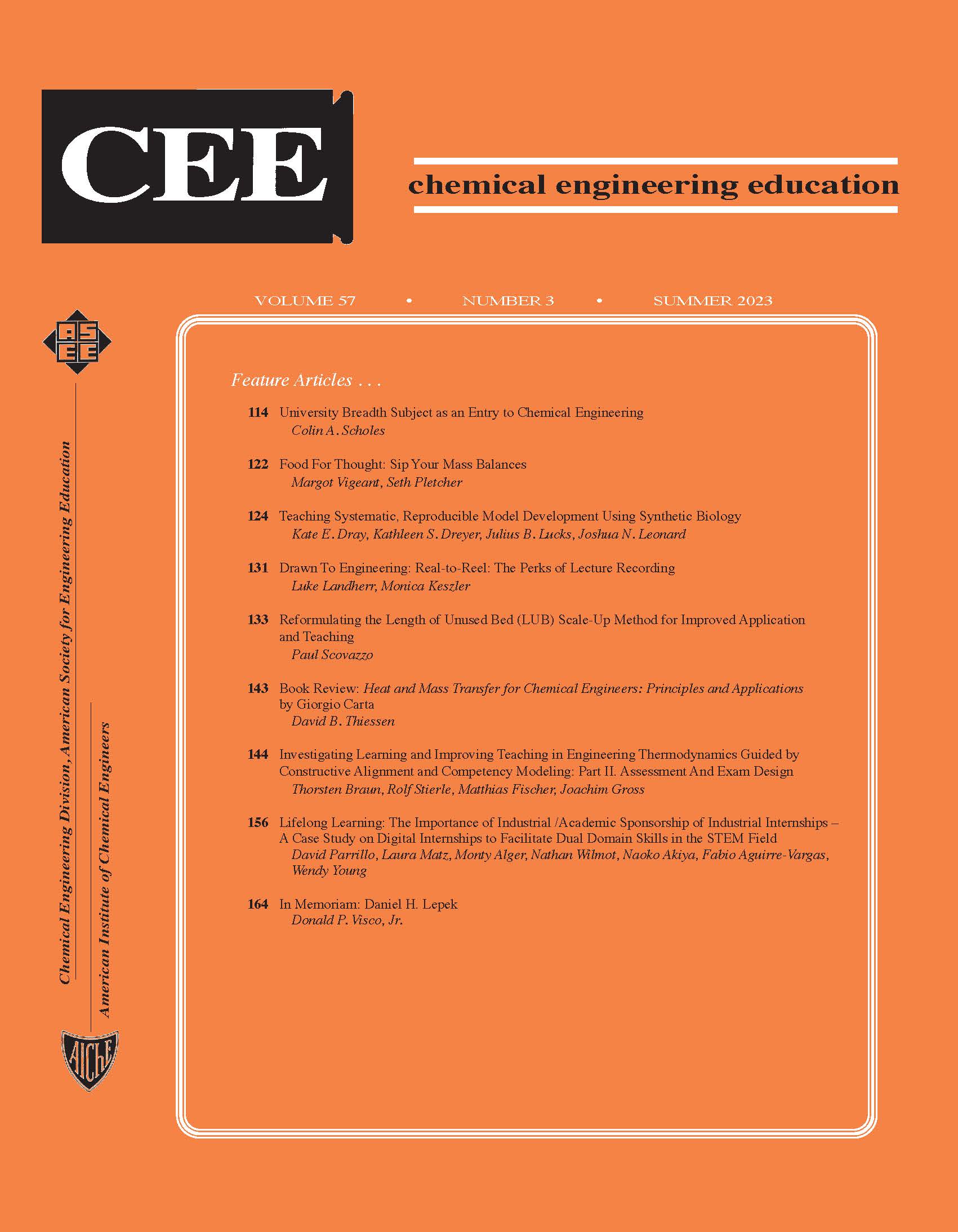Teaching Systematic, Reproducible Model Development Using Synthetic Biology
DOI:
https://doi.org/10.18260/2-1-370.660-132665Abstract
We present an educational unit to teach computational modeling, a vital part of chemical engineering curricula, through the lens of synthetic biology. Lectures, code, and homework questions provide conceptual and practical introductions to each computational method involved in the model development process, along with perspectives on how methods can be iterated upon to arrive at a final model. Ultimately, this content can be applied broadly to address questions in synthetic biology and classical chemical engineering.


